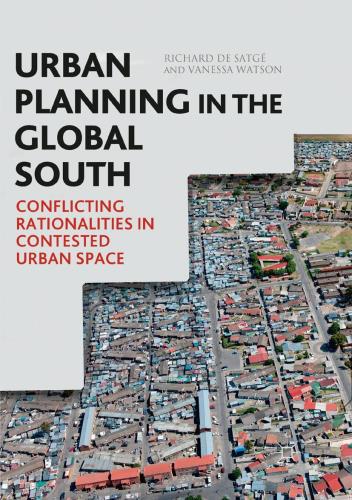
Urban Planning in the Global South
Conflicting Rationalities in Contested Urban Space
| Autor | |
| Quelle | Sonstige Datenquellen |
| ISBN | 978-3-030-09890-2 |
| Lieferbarkeit | lieferbar |
| Katalogisat | Basiskatalogisat |
| Verlag | Springer International Publishing |
| Erscheinungsdatum | 15.01.2019 |
Beschreibung (Langtext)
This book addresses the on-going crisis of informality in rapidly growing cities of the global South. The authors offer a Southern perspective on planning theory, explaining how the concept of conflicting rationalities complements and expands upon a theoretical tradition which still primarily speaks to global ‘Northern’ audiences. De Satgé and Watson posit that a significant change is needed in the makeup of urban planning theory and practice – requiring an understanding of the ‘conflict of rationalities’ between state planning and those struggling to survive in urban informal settlements – for social conditions to improve in the global South. Ethnography, as illustrated in the book’s case study – Langa, a township in Cape Town, South Africa – is used to arrive at this conclusion. The authors are thus able to demonstrate how power and conflict between the ambitions of state planners and shack-dwellers, attempting to survive in a resource-poor context, have permeated and shaped all state–society engagement in this planning process.
- Addresses a major concern worldwide on planning African (and other global south) cities, especially since the adoption by the UN of the new Urban Sustainable Development Goal in 2016
- Contributes to a current shift in planning theory away from its parochial global North focus to become more international
- Contains fascinating detail on the lives of inhabitants of a Cape Town informal settlement as well as how the South African state has attempted to deal with such settlements




